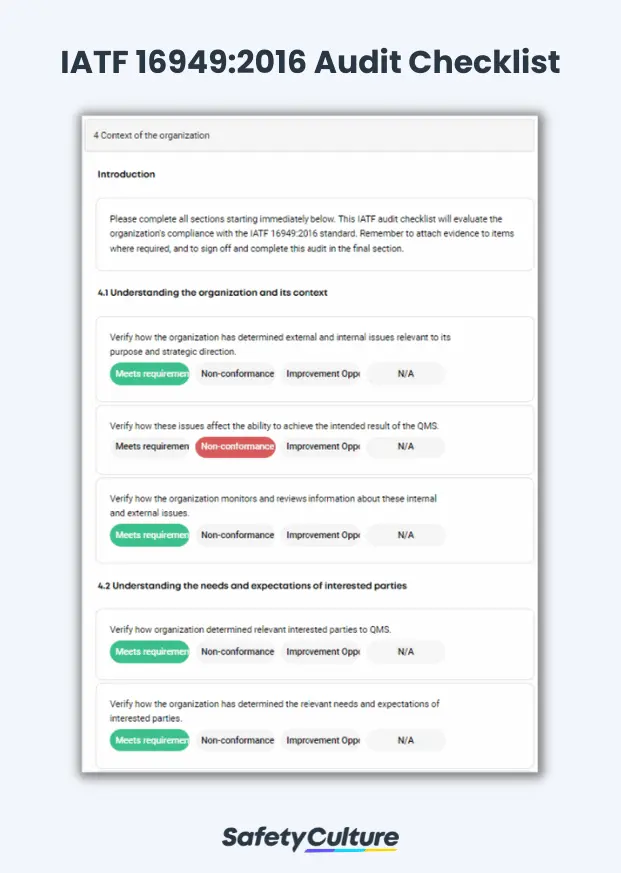What is an IATF Audit?
An IATF audit is the process of evaluating an automotive manufacturer’s Quality Management System (QMS) compliance with the IATF 16949:2016 standard. The IATF 16949:2016 standard replaced ISO/TS 16949 and it intends to prevent defects, reduce waste, and facilitate continuous improvement.
What is the IATF Standard?
The IATF 16949:2016 standard was developed by the International Automotive Task Force (IATF), a global group of manufacturers and business organizations in the automotive industry that aims to build consensus on benchmarks for product quality and processes in the automotive supply chain.
Car manufacturers that are members of IATF require their suppliers to be certified for the new IATF 16949:2016 standard. Implementing the international standard, however, has some challenges.
Challenges of Implementing the New International Automotive Task Force 16949:2016 Standard
The required implementation of IATF 16949 means that automotive suppliers and manufacturers need to follow a QMS standard that is based on ISO 9001:2015. However, there are challenges in transitioning to the new standard and maintaining compliance after the fact. Here are 3 of the common challenges in the implementation of the IATF QMS standard:
Challenge #1: Storing Mandatory Records
Compliance with the IATF standard requires both the documentation of processes being implemented and proof of audits conducted and actions taken whenever nonconformance is observed. These records can show if issues are addressed and if continuous improvement is indeed taking place. For those who use paper-based checklists, this can pose challenges when it comes to recordkeeping. In the long run, paperwork will pile up and all of them will need to be manually stored, maintained, and organized.
Challenge #2: Providing Timely Action
Actions taken to address nonconformance need to be timely, easily monitored, and properly documented. Addressing issues in a timely manner can prevent more defects and help lessen waste in the supply chain. With paper-based checklists, data collected need to be manually entered into a database before a report can be made to initiate action, ultimately defeating the purpose of a timely response.
Challenge #3: Maintaining Accountability and Competency
To ensure effectiveness of the QMS, the IATF standard requires accountability on the part of management and proof of competency on the part of workers and auditors. Conducting regular audits reinforces adherence to the QMS standard and demonstrates competency, which is also reflected on the audit reports. With paper-based audits, providing evidence of accountability and competence is a challenge due to the amount of paperwork that can be unmanageable once they pile up.


